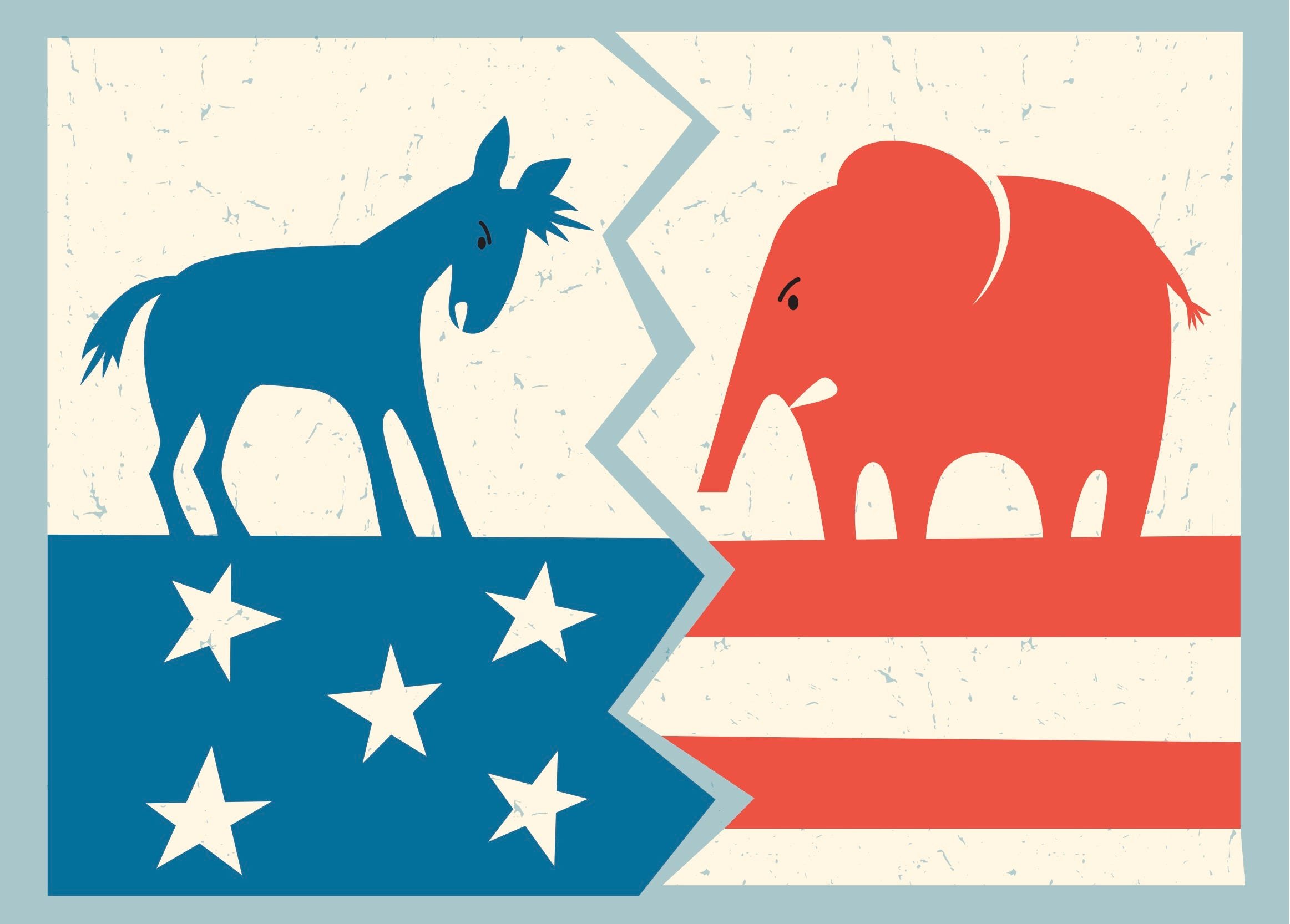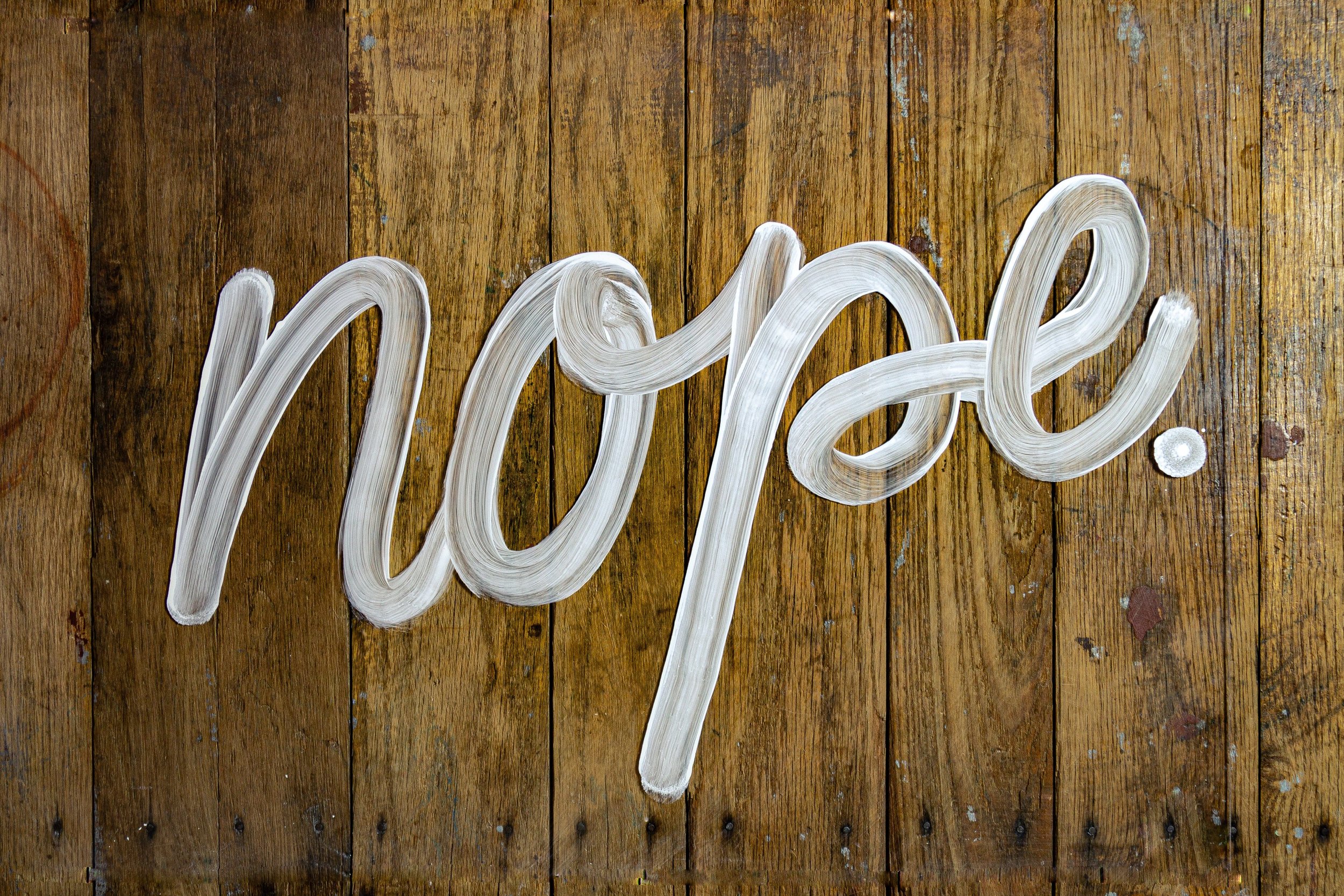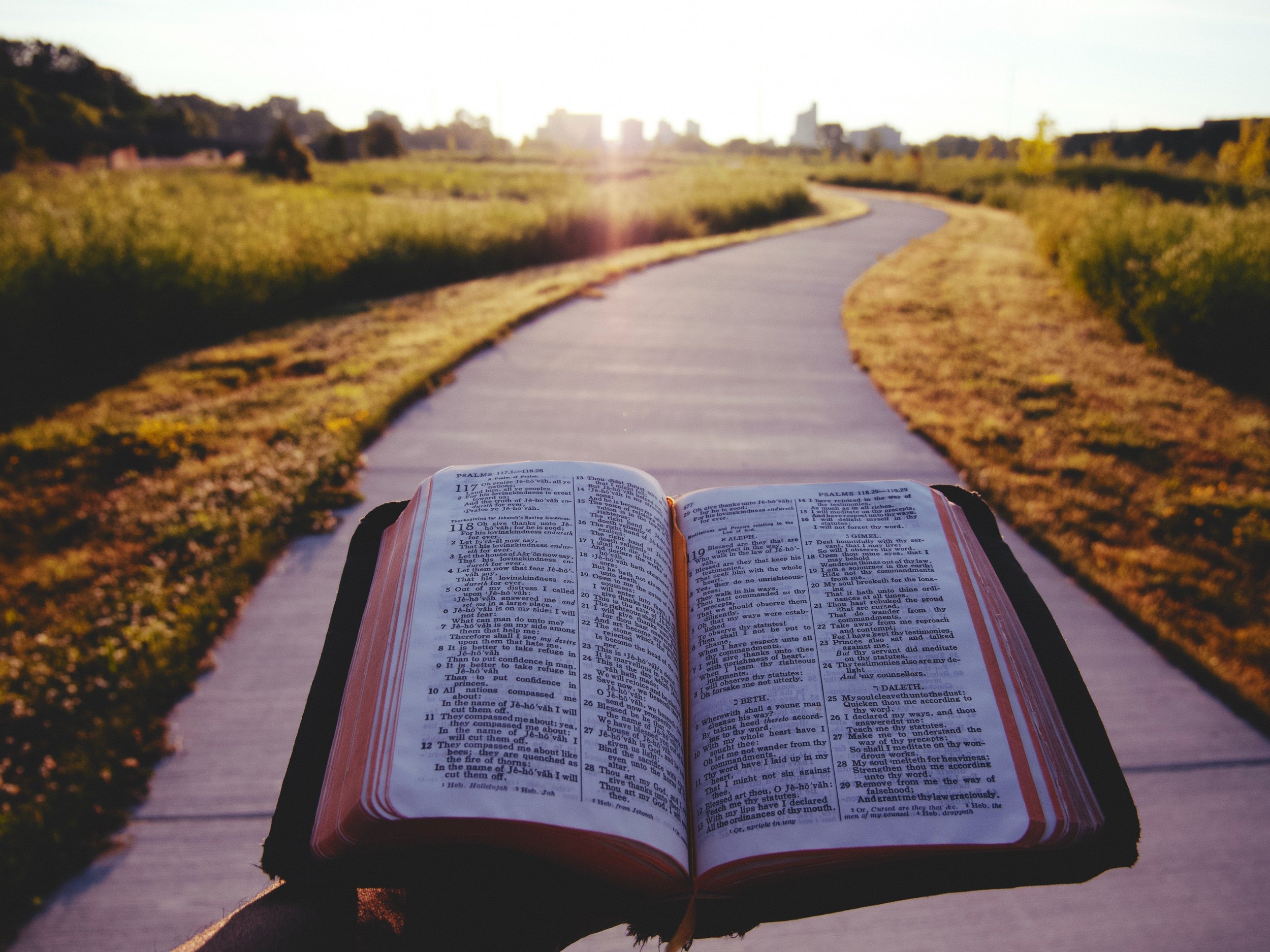I've been thinking about trying to walk with one another when we disagree so much.
Yet again, my friend wanted to talk about voter fraud in the 2020 election and why Joe Biden is an illegitimate President. We’ve been at this since November 2020, when he insisted that evidence proved the vote in Fulton County, Georgia was rigged. After two years of this, I want to put up my hand to stop his rant and yell ENOUGH! ENOUGH! I’m bored with this and so many other useless conversations that are going nowhere except into the bleak pit of my emotional, intellectual, and spiritual frustration that is long past full.
In these conversations, one or both of us is so entrenched in our convictions that we barely listen to one another before reciting our own political litanies. What ensues in such dialogues – or sequential monologues – is not open exchange but a useless and tediously boring recital of how we differ and how neither of us is openminded enough, openhearted enough, to dare to change.
Now, at my age, I want to discipline my time, marshal my love, exercise whatever energy I have left in conversations that have a chance to bring us closer. So I’m not going to let myself get caught again in such dialogues. If it’s going to be one more useless conversation, I’m done.
My initial response to giving up these conversations is relief. I’ve been in so many of them over decades, and especially over the past six years, and they’ve never changed anyone’s mind, including mine. They’ve created distance, not intimacy, so I’m glad to give them up.
But at the same time, giving up means being confronted with who I am and what it means to be faithful to the identity I’ve worked long and hard to establish. I decided long ago that my decision to make it a purpose in my life to help turn the human race into the human family requires witnesses, those who will speak up and act up on behalf of the human family. I want to be such a witness. But if I give up these conversations, do I abandon this role? If I take myself out of the fray, do I leave that space vacant, to be filled with the misinformation that I still believe characterizes so much of the other side? If I stop talking about these issues with close-minded people, am I betraying my calling to bear witness?
In addition – and this is very painful to consider – if I stop talking to those I consider close-minded and intolerant, have I too become intolerant and close-minded? Have I given up on the love I say is the generative force driving my commitment to the human family? Every time I work my way again through this issue of giving up these useless conversations, I’m left troubled by my own stubbornness, concerned about my willingness to abandon my witness which is my primary means for expressing my love.
After all this wasted energy on conversations that go nowhere, I’ve finally come to understand why these conversations are so difficult. I now understand that our disagreements are deeper than our differences about facts or policies. When I’m enticed to lean into yet another useless dialogue, I realize I’m dealing not just with another person’s ideas or opinions; I’m dealing with their identity, which is as unshakeable as mine. However we got to this point in our lives, each of us is the product of our upbringing, our education, relationships that shaped us, personal traumas, whatever faith we had or now have. The choices we make in how we vote and spend and tolerate and support others grow out of this deep soil of the person we’ve each become. So when I argue with someone about these issues, no amount of evidence moves us. It’s like thinking I might, with my brilliance, convince whomever I’m talking with to change the color of their eyes. Not gonna happen!!
When I’m enticed to lean into yet another useless dialogue, I realize I’m dealing not just with another person’s ideas or opinions; I’m dealing with their identity, which is as unshakeable as mine.
This awareness that my identity is really what’s at stake in these dialogues made me look again at how I got to be the person I am now, and why I arrived at the political persuasions I now trust. I got to this place in my life through the course of a journey shaped by the communities I’ve been a part of, people who influenced me, and experiences that left their indelible marks on me.
I grew up in a church that instilled in me a set of once-unshakable beliefs, such as:
God created the heavens and the earth in 4004 BCE, which I firmly believed until my high school biology class with Ms. Vollmer shook the foundations of this creationist belief and other certainties by introducing me to serious science.
Conservative evangelical faith is the only true religion, which caused me to break up with my wonderful first girlfriend my senior year in high school because she was a Christian, as I was, but a clear-hearted Roman Catholic which, in my small-minded Protestant evangelical world was as invalid as being Jewish or Buddhist or Muslim or, worst of all, agnostic or atheist.
Women are subject to the authority of men, to such an extent that Becky and I included in our wedding vows, at 20 and 22 years old, this maxim from Saint Paul’s Epistle to the Ephesians, Wives obey your husbands, marital silliness that our life together reduced to dust by the end of the first of our now-fifty-nine years of marriage.
And this list of beliefs went beyond my religion to the politics that accompanied our conservative faith. In summary, it was the declaration that the United States was, in the later words of President Reagan, the shining city on the hill, the world’s one exceptional nation despite our unrepentant persistent racism, gender inequality, genocide of native populations, rural poverty, urban blight, and overall gross economic inequality.
Looking back, I realize these convictions were not just about my feelings, not just statements of my faith. They were who I was. To be sure, I was the biological child of my parents and the cultural child of the family and socio-economic world I grew up in. I didn’t think much about my DNA or my cultural heritage, though, because I was firmly busy being a young evangelical Christian, believing steadfastly in the inerrancy of the Bible and a God who was the spitting image of President Eisenhower. This was the clearest understanding I had of my identity at that young stage of my life.
But by the time I left seminary at twenty-five, I had transformed into almost an entirely different identity, one focused less on the idea of personal salvation that had dominated my earlier years, and instead wrapped into ground-level issues of peace and justice.
The campuses at UCLA and Princeton Theological Seminary were communities of diversity and intellectual curiosity that were in sharp contrast to the white, Republican, upper-middle-class church that raised me in the 1950s. I majored in history with a minor in English Literature, which exposed me to events and stories I’d never imagined, cultures I knew nothing about, ideas that rattled my earlier convictions and forced me to think and rethink what I believed and who I was. The same curiosity that was a threat to my former faith – just accept the received truths and values, without question – was now an indispensable guide as I stumbled my way across this new terrain. And during all these years of my twenties, the Civil Rights Movement and the Vietnam war were the catastrophic political and moral backdrop against which I was hammering out what I was committed to and who I was.
Dr Martin Luther King Jr. speaks at an anti-Vietnam War rally at the University of Minnesota in St. Paul, MN (April 27, 1967).
All of this gave me a new sense of myself. But looking back, what changed me was not a series of long arguments about who was right and who was wrong about particular issues. It wasn’t any intellectual persuasion at all that led to this seismic shift in my identity; rather, it was the communities I was in, the people who loved me, the ideas that attracted me like a moth to a porch light. There was a slow evolution from who I’d been to who I was now becoming. I was now a Christian social activist, making company as much with a wide range of secular social activists as with many of my still-conservative fellow Christians.
What changed me was not a series of long arguments about who was right and who was wrong about particular issues. It wasn’t any intellectual persuasion at all that led to this seismic shift in my identity; rather, it was the communities I was in, the people who loved me, the ideas that attracted me like a moth to a porch light.
Decades later, I’m still faced with the problem of how to relate to people, whatever their faith or heritage, who have arrived at identities perhaps superficially similar but fundamentally so unlike mine that we find it difficult to talk about anything of substance without reverting to verbal combat. We don’t want to give up on our relationships, but it’s hard to take it beyond shallow chit chat to serious issues that threaten to destroy our love for one another.
How do we talk to each other when we find it nearly impossible to listen to each other? Or more precisely, what do we talk about? I fret over this, and have little to say as a solution to the conundrum.
But this much seems viable: if you’re in a different place than I am, I’m curious to know how you arrived at your place. What happened in your family and your education and your faith experience and your love life to bring you to this particular way of explaining to yourself who you are? I wonder if you would share with me your story of how you got to be you. If we slide toward those toxic differences between us, I hope to resist the temptation to argue, my restless need to convince you that I’m right and you’re wrong. I think I will be able to stifle my rebuttals and simply listen. Tell me your story, I’ll tell you mine, and perhaps we can at least understand how we got to this intractable place.
Will this lead us to common ground? No, I don’t think so. In fact I’d like to give up the expectation that my story will convince you to alter yours any more than I think your story will cause me to rethink mine. The goal is not to agree on an issue or find a compromise; the goal is to see one another as human beings who have intrinsic value.
It’s worth it to me simply to know you, and how you got to be you. For now, for me, that’s enough.






